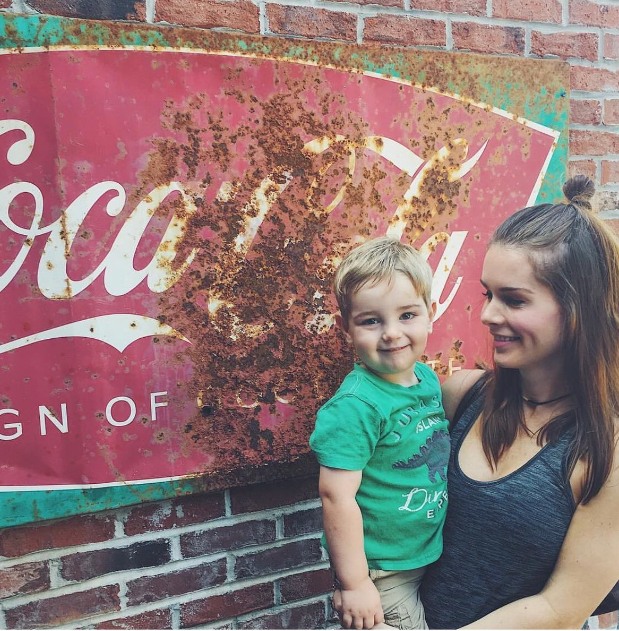
One of the first things I remember learning in yoga class was the importance of the breath.
It seemed strange to me at the time: as a youth I had played soccer and ran track, so I knew the importance of pacing and breathing, but this just felt like stretching, why should it matter how I was breathing?
I soon learned that it wasn’t about breathing per se, but more about finding a way to connect with myself and tap into what I was thinking and how my thoughts were making my body feel right in that moment. That first yoga class was the start of an awakening that I’ve kept with me through young adulthood, and now into early parenting.
Conscious breathing, which is to say, focusing on the rhythm of the breath, has saved me from untold amounts of unnecessary stress and emotional overreacting, and no doubt prevented long-term damage to my kids and husband.
The magic of this practice happens the moment we stop focusing on our thoughts, and instead focus on our breath—that alone allows us to step outside of the situation and observe it as an outsider. In those few seconds, we’ve won the battle in our mind and can return to the scene fully awake and present. It truly is a miracle moment when we take back control from hard-wired tendencies and gut reactions, and see life from a new perspective and with more control than we’ve ever felt before.
I rely on conscious breathing mostly when I’m nervous or angry. If I have an important interview, or am meeting someone who intimidates me, I simply bring my attention to my breath and remember who I am and that I love myself fully. It immediately calms me down and lets whatever interaction that follows be authentic and so much richer.
I’m not sitting there worried about what the other person is thinking of me; I’m genuinely interacting with them and listening to what they are saying. Consequently, the other person feels my energy and becomes equally engaged. What could have been a meaningless interaction has been transformed into something special, from which both parties walk away feeling uplifted.
When I’m angry, it saves me from saying things I can’t take back, or worse, acting out in ways that I would regret later on.
As any human on earth knows, family has a special way of getting under your skin, and kids are no different. They know exactly how far to push you before you lose it, and if you are not aware of your breathing, you can get lost in the wave of emotion that comes with feeling out of control and tied to your thoughts.
The minute my son spills his entire dinner plate onto the floor (on purpose!) because he doesn’t like the peas, or marks up the wall because he’s bored, I have a choice to lose it, or take a step back, breathe, and focus. I’m happy to say that the more you practice conscious breathing, especially in times of heightened emotion, the more apt you are to use it. It has gotten to the point now where it’s my default reaction. I may sound like a wind tunnel at times, but my kids and husband know that the alternative is much worse.
But the point I want to stress the most, is that my decision to not immediately react, and instead take a moment to breathe, has had an effect on the behavior of my immediate family.
Just last week, my oldest was at the table about to tuck into his dinner, when a jerked arm movement and a glass of almond milk too close to the edge came into contact. The glass went crashing to the wooden floor with a loud thud, and my son looked up at my husband with a wide-eyed, scared expression on his face. When my husband didn’t react, and instead said, “Hey, it’s okay, let’s just get this cleaned up so we can eat,” I could feel my son’s energy relax, and I saw his shoulders settle back into place away from his ears. I knew right then, that my decision as a mother to be more mindful and calm when things got tough or insanely frustrating had made its way into my husband’s consciousness—and now he was practicing it too.
It may not seem like much, but studies show that subjecting children to yelling and spanking has a tremendous effect on how they think about themselves and grow into adults. It actually damages the cerebral and psychological development of their brains.
Equipped with this knowledge, how could I ever think of sliding back into unconsciousness?
The future of my children’s well-being depended on me being able to handle myself and find other ways of dealing with uncomfortable emotions. How we process our emotions in the presence of our children (and everyone) has such a tremendous impact on them, and the future of the world.
I am forever grateful for that first yoga class. It allowed me to gain access into another dimension of living, whereby simply focusing on the in and out of my breath changed my life and the lives of my husband, children, and community at large.
~
Author: Lizzie Carlile
Image: Author’s Own
Editor: Catherine Monkman
Copy Editor: Callie Rushton
Social Editor: Travis May











Read 0 comments and reply